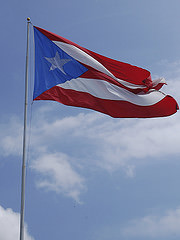House lawmakers concerned about the possibility of self-dealing and other hidden conflicts of interest in Puerto Rico’s $123 billion bankruptcy introduced a measure yesterday intended to strengthen reporting requirements, after one of the case’s most influential consultants was shown to have an undisclosed stake in Puerto Rico’s debt, the New York Times reported. Representatives put the bipartisan measure forward after the Times reported that the consultant, McKinsey & Company, had bought millions of dollars’ worth of Puerto Rican bonds at a deep discount and had not disclosed that investment. That puts the consulting firm, which is advising a federal oversight board as it leads the island through fiscal reforms and a debt restructuring, in a position to profit from the plans that it is helping to design. “The people of Puerto Rico can’t have faith that this oversight board is putting their interests first if consultants helping implement the restructuring could profit from how much debt service is available under the very fiscal plans they design,” said Representative Nydia M. Velázquez (D-N.Y.), who is the lead sponsor of the bill. Other sponsors include Representative Rob Bishop (R-Utah), who is chairman of the House Natural Resources Committee; Representative Raúl M. Grijalva (D-Ariz.), who is expected to become chairman next year; and Jenniffer González-Colón (R-P.R.), who represents Puerto Rico as a nonvoting member. The House Natural Resources Committee has jurisdiction over United States territories and drafted the bankruptcy-like law that governs Puerto Rico’s restructuring proceedings, but it left out the disclosure provisions customarily found in bankruptcy statutes. Read more.
In related news, Puerto Rico will not obtain a clear picture of how soon it will finish restructuring the bulk of its public debt until the spring, a lawyer for the U.S. commonwealth’s federally appointed fiscal oversight board told a judge on yesterday, Reuters reported. It is also possible an adjustment plan could be imposed on creditors, a process known as a cramdown, the lawyer said. Martin Bienenstock, who represents the board tasked with overseeing the island’s finances and debt restructuring, said more details on a plan of adjustment for the central government’s debt would be known by a “March-April time frame.” Puerto Rico has been in federal court since May 2017 trying to restructure roughly $120 billion in public debt and unfunded pension liabilities under a form of bankruptcy. So far only about $4 billion of Government Development Bank debt has been restructured through a consensual deal with creditors. Deals are in the works for the island’s Sales Tax Financing Corporation, known as COFINA, and the Puerto Rico Electric Power Authority (PREPA). Bienenstock told U.S. District Court Judge Laura Taylor Swain, who is hearing Puerto Rico’s bankruptcy case, that mediation efforts between the island and creditors will resume early next year. The objective is to reach consensus over a plan of adjustment for roughly $13 billion of general obligation debt and almost $50 billion in unfunded pension obligations, he added. Read more.

